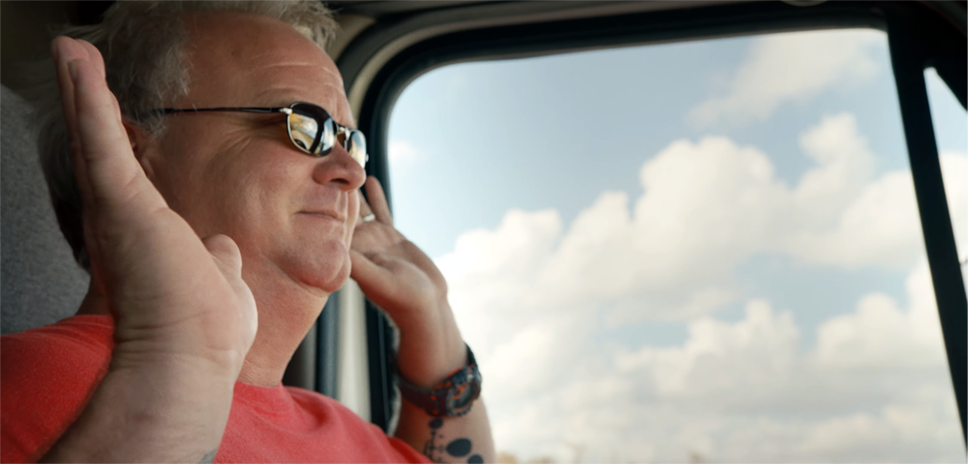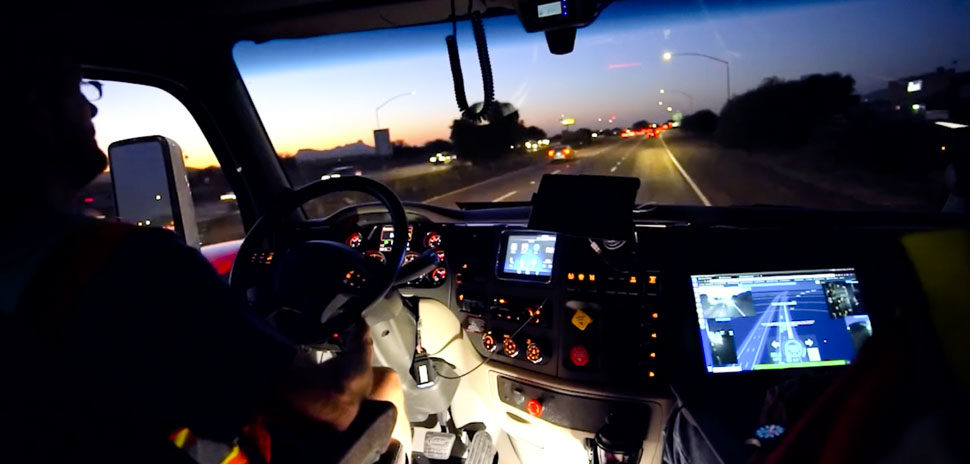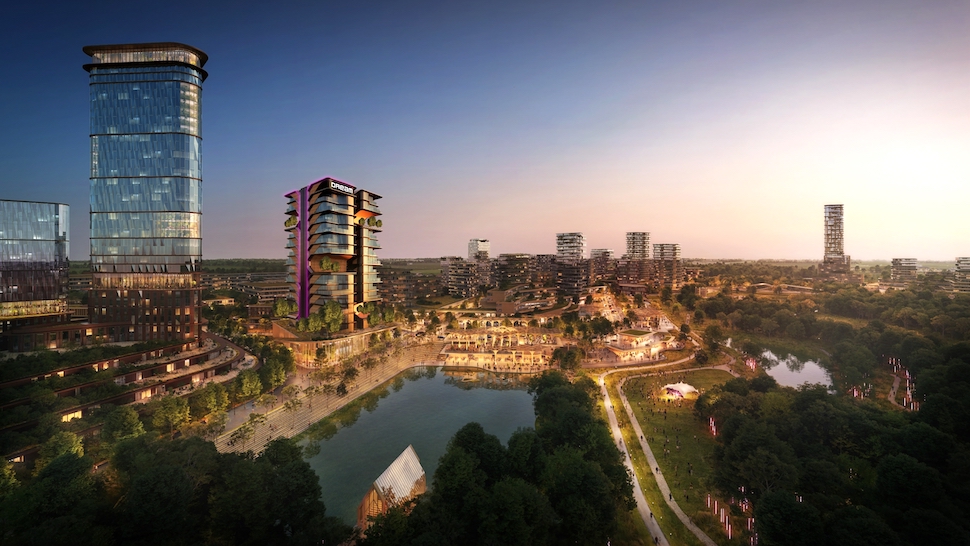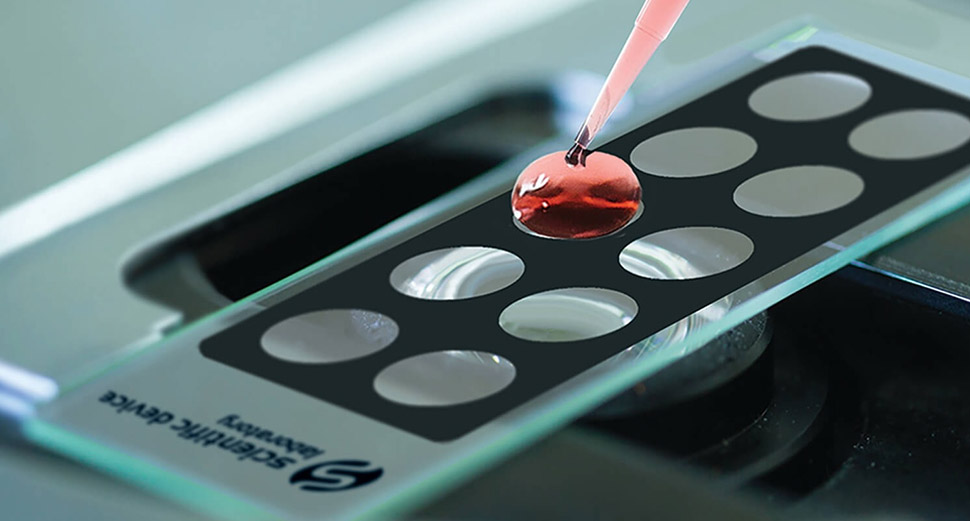Earlier this month, we told you about a California-based startup that had made the decision to choose Texas, and particularly Dallas-Fort Worth, as its main base for testing its self-driving long-haul trucking technology.
From a new facility, Kodiak Robotics plans to pilot and grow its freight operations to eventually provide the first commercial application of autonomous driving at scale. A lot of variables drove that decision, but according to the Kodiak co-founders, the ultimate goal was to make Texas the home of self-driving trucks.
Kodiak, like many others entering the autonomous vehicle scene, thinks long-haul trucking is going to be the first commercially viable application of driverless technology. Cars will eventually follow.
And Dallas-Fort Worth just might be the perfect place situated in Texas to do it.
The Kodiak co-founders told Dallas Innovates that logically, it makes more sense to test the tech somewhere with good weather, high quality roads, and ideal geographical features. The freight-rich economy is high in the state, with 2.2 billion tons of freight moved in 2016, according to Wired. There’s also the surplus of road space—the U.S. Department of Transportation shows that Texas far surpasses all other states when it comes to the total miles of interstate routes.
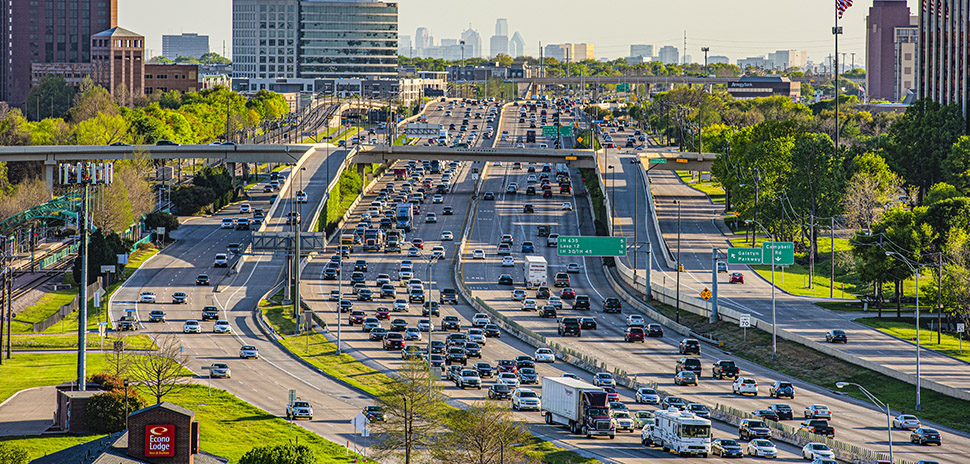
[Photo: Michael Samples]
Though Kodiak is based in Silicon Valley, it’s not yet legal to operate autonomous trucks in the state of California. Texas legislature made that legal two years ago, as long as traffic laws were obeyed.
Stefan Seltz-Axmacher, founder of Starsky Robotics, told Wired that “states with no self-driving laws on the books open the issue to case-by-case interpretation,” which can leave “those working on experimental technology in a legalized limbo.”
Starsky is another California-base startup that is testing on autonomous technology on trucks that haul freight. The company’s goal is to make trucks self-driving on the highway, but for the first and last mile, they’re to be remote controlled from afar by human drivers.
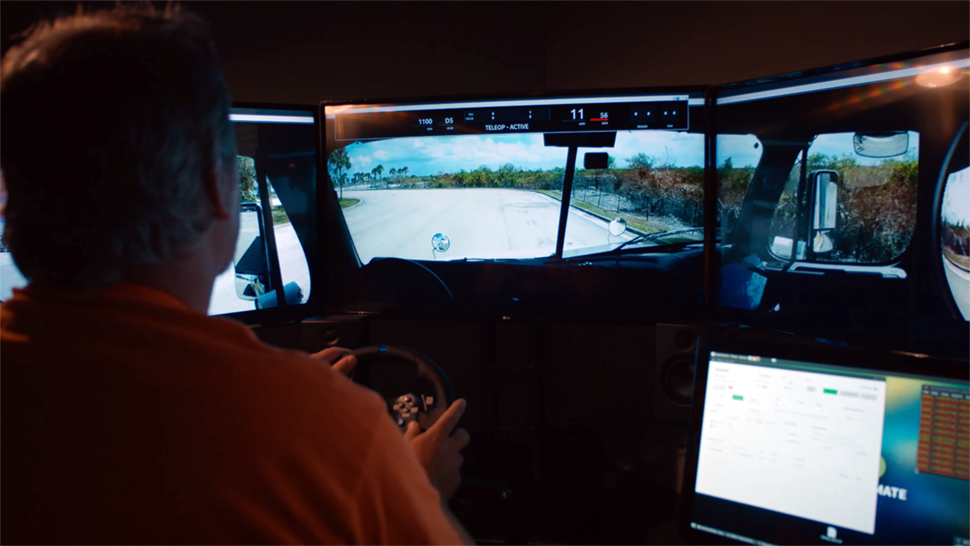
[Image: via Starsky Robotics on YouTube]
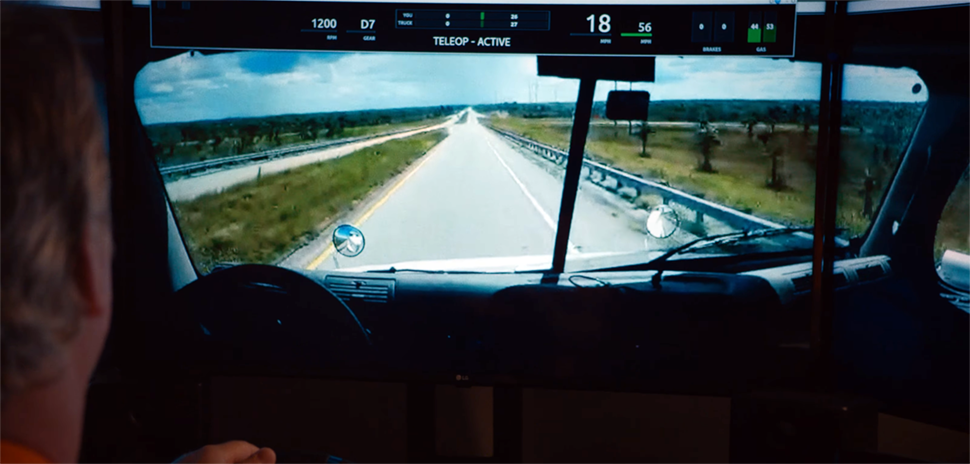
[Image: via Starsky Robotics on YouTube]
To make that happen, Starsky also runs a traditional trucking business that came out of stealth in June after operating for two years.
In a Medium post, Seltz-Axmacher writes that Starsky’s model is different in that the regular trucking company serves as a “beachhead” for the autonomous trucks. The “secret” traditional model being successful enables the autonomous side of things, and vice versa.
Essentially, Seltz-Axmacher says it proves that “trucking, an industry many assume to be completely adverse to the slightest change in technology, is more than comfortable with the idea of unmanned self-driving trucks hauling their freight every day.”
That operations team, making everything happen, is based here in Dallas. Paul Schlegel, who’s worked locally on Stevens Transport and Roadrunner Transportation Systems, was hired on as the lead.
“Paul’s been able to work closely with our existing team, and built a team of future-minded industry veterans in Dallas,” Seltz-Axmacher wrote. “They’re doing many of the everyday trucking things that don’t scale; while keeping a list of things that, with technology, just might.”
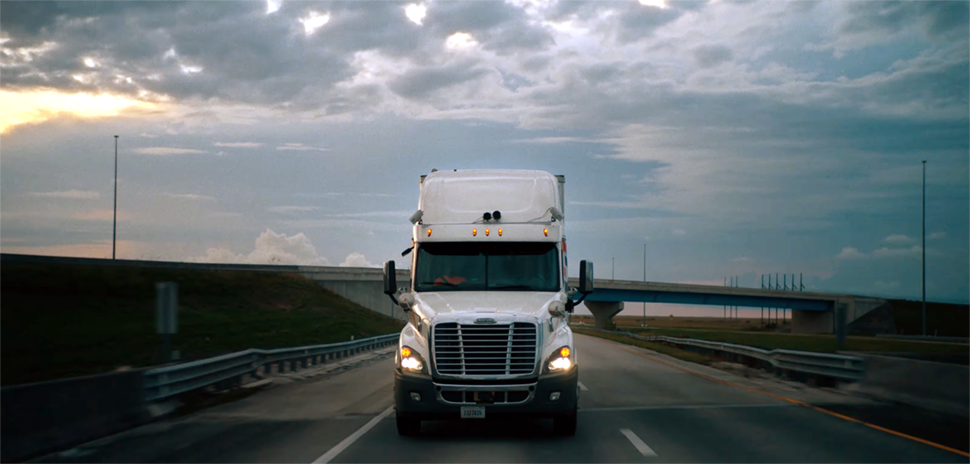
[Image: via Starsky Robotics on YouTube]
Schlegel and his team in Dallas operate a fleet of 45 trucks, three of which are equipped with autonomous tech, according to Overdrive. The article says that the three designated trucks—complete with on-vehicle cameras and radar systems—are tested on short lanes, with two drivers (one inside and one remote) in charge of each truck.
“Our approach doesn’t rely solely on machine learning. … We want to be able to operate on repeatable lanes in Texas and Florida,” Schlegel told Overdrive.
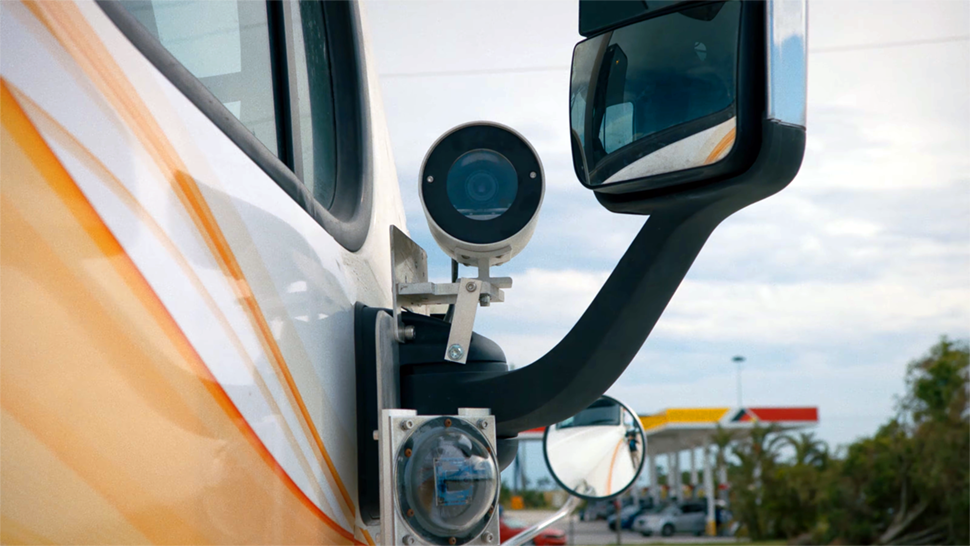
[Image: via Starsky Robotics on YouTube]
Starsky made major headway earlier this month when it announced that together with tech logistics company Loadsmart it had completed the “first autonomous dispatch and delivery of freight.” The two companies said that Loadsmart’s AI-powered pricing and load-matching technology combined with Starsky’s API allowed for a shipment to be booked and loaded without any human involvement.
“Today, for the first time ever, the advances that seem obvious for the ride-sharing services are coming to trucking,” Seltz-Axmacher said in a statement at the time. “It’s not uncommon for a traditional trucking company to have five full-time employees involved in dispatching each truck for each load. By integrating e-brokers like Loadsmart, we are eliminating all back-office human intervention and making the shipment process seamless, while focusing on ensuring the safety of driverless trucks.”
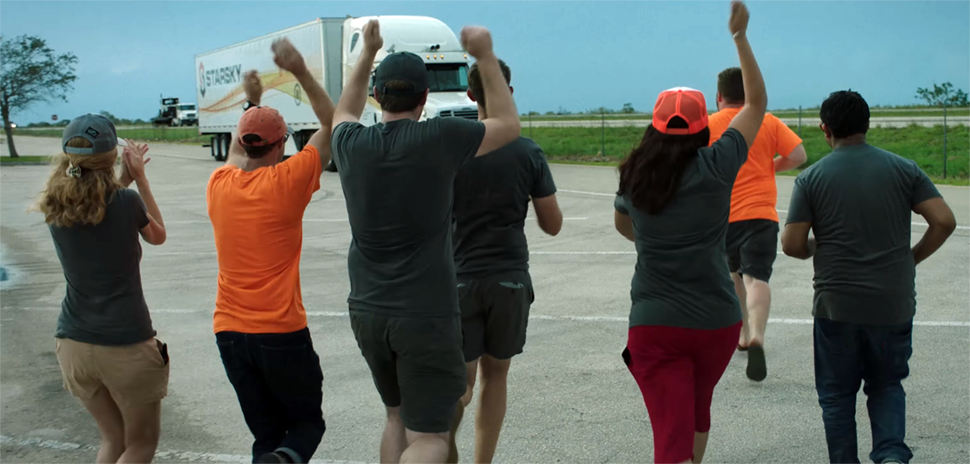
[Image: via Starsky Robotics on YouTube]
The trip consisted of 135 miles from Dallas to Longview, as reported by Automotive Logistics, with a second one following between El Campo and Grand Prairie. Kodiak, meanwhile, has been testing its commercial trucking on the roughly 250-mile route from Dallas to Houston.
Those aren’t the only two with Dallas routes either. In May, the U.S. Postal Service partnered with TuSimple, another California startup focused on autonomous long-haul trucking, for a two-week trial run. The five round trips USPS and TuSimple performed followed a 1,000-mile route between USPS’ Phoenix, Arizona and Dallas distribution centers.
“As a region adding more than 1 million new residents each decade, it is important to develop a comprehensive strategy for the safe and reliable movement of people and goods,” Thomas Bamonte, senior program manager of automated vehicles at the North Central Texas Council of Governments, previously said in a statement. “Our policy officials on the Regional Transportation Council have been very forward-thinking in their recognition of technology as part of the answer, which is positioning our region as a leader in the automated vehicle industry.”
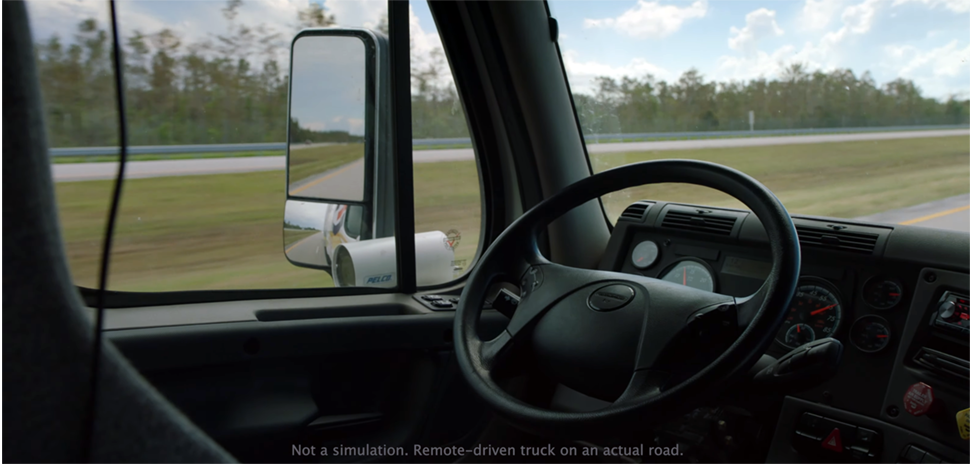
[Image: via Starsky Robotics on YouTube]
FreightWaves noted recently that the number of transportation operators in North Texas is growing, with many opting to “launch a range of cutting-edge mobility services, from self-driving trucks to robotic food delivery and air taxis, in this Northern Texas metropolis.”
So, why North Texas?
“If you look at the companies making those decisions—Uber, Kodiak, Toyota—Dallas makes a lot of sense, because of the ease of operations, real estate, and the talent pool,” Duane Dankesreiter, senior vice president of research and innovation at the Dallas Regional Chamber, told FreightWaves. “Dallas is well-positioned in terms of the new mobility conversation.”
![]()
Get on the list.
Dallas Innovates, every day.
Sign up to keep your eye on what’s new and next in Dallas-Fort Worth, every day.










